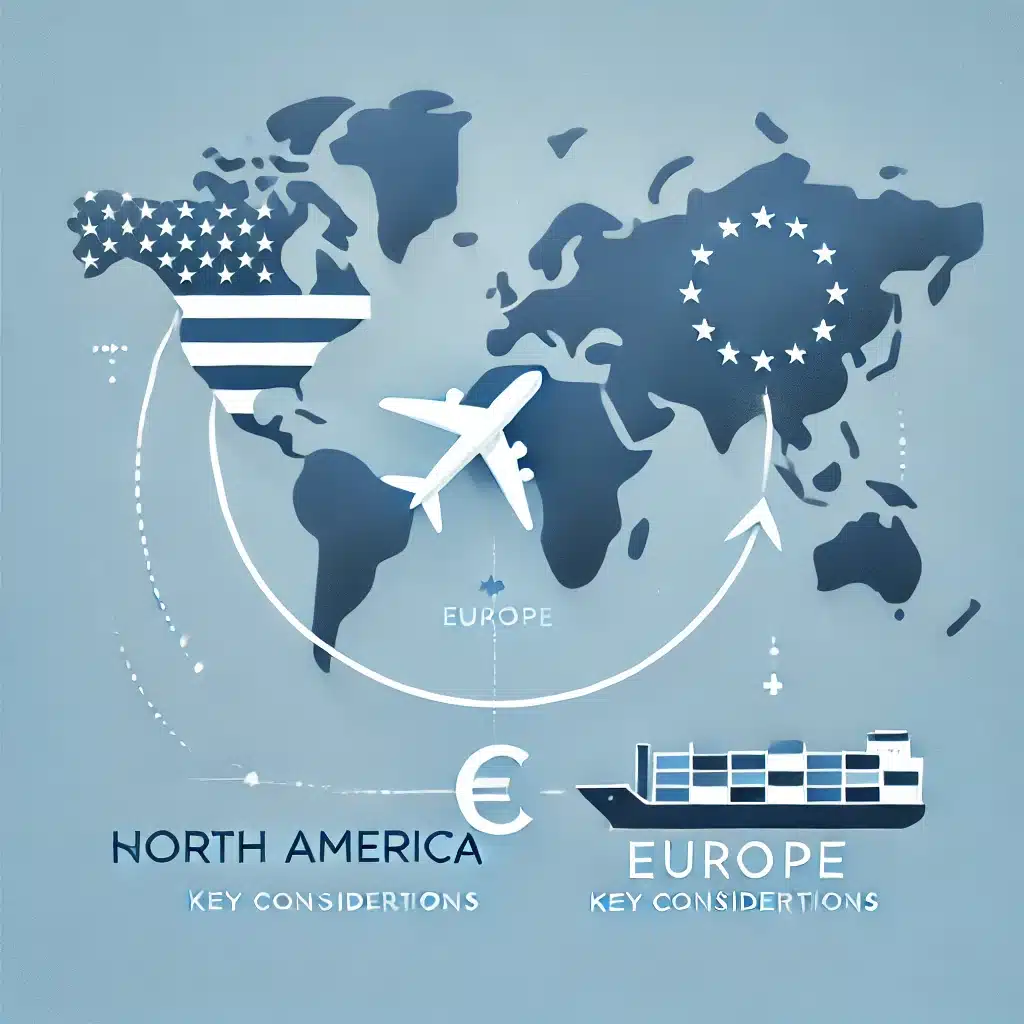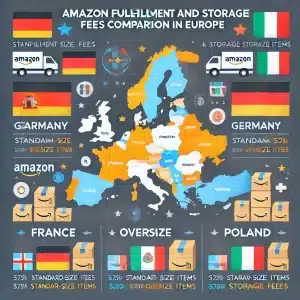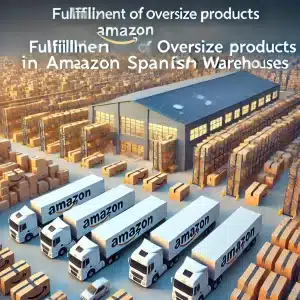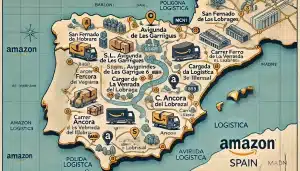For American businesses aiming to enter the European market, navigating the complexities of local regulations, taxes, and logistics is essential. Below, we explore the critical questions to consider, from the requirements for importing and storing inventory in Europe to the potential tax implications of establishing a business presence.
1. Can an American Company Import and Store Inventory in Spain for European Distribution?
Yes, an American company can import and store inventory in Spain for distribution within Spain and across Europe. The company will need both an EORI number (Economic Operator Registration and Identification) and a Spanish VAT number.
The EORI number is necessary for customs purposes, allowing the company to import goods into the European Union, while the Spanish VAT number enables the company to charge, collect, and remit VAT on sales within the EU. With these registrations, an American company can legally import, store, and distribute inventory from Spain to other EU countries.
2. Is It Necessary to Set Up a Limited Company (SL) in Spain if I Have Inventory There?
While establishing a Spanish Limited Company (SL) is not strictly necessary to store inventory in Spain, doing so can bring several advantages. Operating solely with an EORI and VAT registration may suffice for straightforward storage and distribution, but a limited company structure can provide distinct benefits, particularly for long-term or high-volume operations.
Benefits of Setting Up a Limited Company (SL) in Spain:
- Limited Liability: An SL structure protects the parent company’s assets in the U.S., as the liability is limited to the SL’s capital.
- Streamlined VAT Compliance: An SL can simplify VAT reporting and compliance, especially when selling within the EU.
- Improved Market Credibility: Operating as a local entity enhances your brand’s credibility in Europe, as consumers and partners often prefer working with established local companies.
- Access to Local Banking and Financing: A Spanish SL can open local bank accounts and access financing options in Spain, which may not be available for foreign entities.
For companies with significant operations, a limited company may improve operational efficiency and offer long-term cost savings.
3. Could Having Inventory in Spain Be Considered a Permanent Establishment?
Holding inventory alone does not necessarily create a Permanent Establishment (PE). However, a PE could be considered if the inventory is actively used for generating income or is accompanied by other factors indicating a “fixed place of business.”
For example, merely storing goods in a Spanish warehouse for distribution may not qualify as a PE. Still, if the business has personnel or agents in Spain closing sales or performing significant business activities, it may cross the threshold into a PE, triggering additional tax liabilities.
4. Would a U.S. Company with EORI and VAT Be Required to Pay Corporate Income Tax in Spain?
No, holding an EORI and Spanish VAT number does not directly lead to corporate income tax obligations in Spain, as these registrations only cover customs and VAT compliance. Corporate income tax in Spain is generally applied to entities or operations that are deemed to have a Permanent Establishment (PE).
If your operations are limited to warehousing and basic distribution without sales or management personnel in Spain, your business would likely avoid corporate tax obligations. However, any signs of significant business activity, such as hiring local employees or managing contracts, may result in the tax authorities viewing your company as a PE, potentially subjecting it to local corporate taxes.
5. When Would an American Company Be Considered to Have a Permanent Establishment in Spain?
A Permanent Establishment is typically established if an American company has a fixed place of business or conducts regular, significant operations in Spain. Indicators of a PE include:
- A physical location used for regular business activities, such as a warehouse actively involved in order fulfillment or customer service.
- Sales and contract management conducted by local agents or employees who act on behalf of the company.
- Marketing and sales activities targeting the Spanish market directly from Spain.
To avoid being classified as a PE, it’s essential to restrict activities in Spain to warehousing and distribution while avoiding any active business management or direct sales from Spanish soil.
6. What Qualifies as Significant Business Operations?
Significant business operations encompass any activity generating income or adding value directly from within Spain. This can include:
- Direct Sales and Customer Service: If your inventory in Spain is not only stored but also actively used for fulfilling local orders or if you employ staff for sales support, this is often deemed significant.
- Marketing and Promotions: Running dedicated marketing or promotional activities targeted explicitly to the Spanish or European market from within Spain indicates an active business operation.
- Hiring and Managing Local Staff: Employing personnel in Spain for day-to-day business management could create a PE and potential tax liabilities.
- Finalizing Contracts in Spain: When employees or agents negotiate and close contracts on behalf of the company, this is a strong indication of significant business operations.
7. Is It Necessary to Register for VAT in Different European Countries if Inventory is Stored in Each Country?
Yes, if an American company stores inventory in multiple European countries, it is generally required to register for VAT in each of those countries. Here’s why this VAT registration is often necessary:
VAT Registration Requirements for Inventory Storage
In the European Union, storing inventory in a particular country typically creates a “taxable presence” for VAT purposes, even if it doesn’t necessarily constitute a Permanent Establishment for corporate tax. When inventory is held in a warehouse within an EU country, the business is considered to be “making supplies” in that country, triggering local VAT obligations.
Each country where inventory is stored and sold directly to customers will likely require a VAT registration. This allows the business to charge the appropriate VAT rate on sales made from each country’s inventory and to comply with local VAT filing and payment obligations.
Practical Implications of Multi-Country VAT Registration
Registering for VAT in multiple EU countries involves several practical and administrative considerations:
- Charging the Correct VAT Rate: When sales are made to consumers in each country, the company must apply the VAT rate specific to that country. The VAT rate varies across the EU, so charging the correct rate is essential.
- Collecting and Remitting VAT: The company must collect VAT on sales from inventory stored within each country and remit it to that country’s tax authorities.
- Filing Periodic VAT Returns: Each EU country where the company is VAT-registered will require periodic VAT returns, which means tracking sales and purchases in each country accurately.
- Inventory Tracking and Compliance: Maintaining accurate records of inventory levels, movements, and sales in each country is critical for VAT compliance. Tax authorities may request detailed reports on inventory held and sold from each location.
Potential Solution: One-Stop Shop (OSS) for Distance Sales
For distance sales to consumers in the EU, the One-Stop Shop (OSS) system can simplify VAT reporting across multiple countries. While OSS is primarily designed for companies selling to consumers across borders without storing inventory in each country, it allows businesses to report VAT centrally through one EU country. However, OSS does not cover scenarios where inventory is stored within each EU country, as this constitutes a local supply.
Therefore, OSS might only partially reduce the VAT administrative burden if inventory is warehoused in multiple EU locations.
If an American company holds inventory in several EU countries, VAT registration in each country where inventory is stored is typically mandatory. While this involves multiple VAT filings and compliance requirements, it ensures the business can legally store, sell, and distribute products within Europe while meeting local tax obligations. A clear VAT strategy, often supported by specialized VAT compliance services, can help manage these obligations effectively.
Final Thoughts
Expanding into the European market can open substantial growth opportunities for American companies. While it’s feasible to operate in Spain with only an EORI and VAT number, creating a Spanish Limited Company (SL) can streamline operations, reduce tax risks, and enhance credibility. The key is to align your operational approach with local requirements, ensuring compliance while maximizing the advantages of a local business presence.








